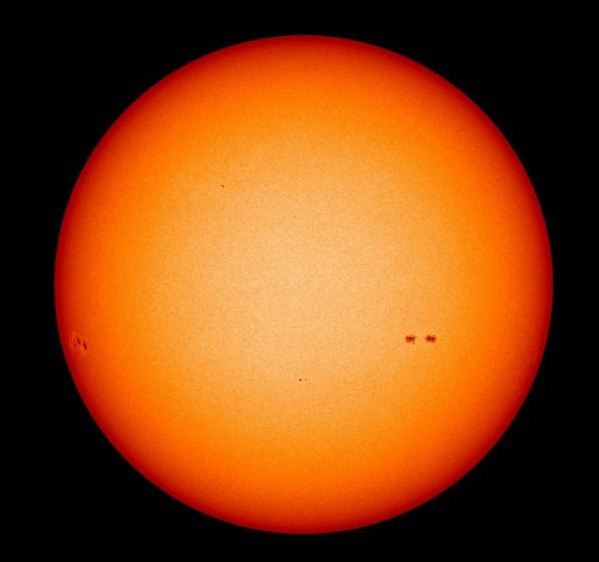Nasa Concerned by Solar Activity: 'Something Unexpected Is Happening’ [VIDEO]
The US space agency Nasa has found that the sun is currently less active than it should be.
"Something unexpected is happening on the sun," the space agency said, "2013 is supposed to be the year of Solar Max, the peak of the 11-year sunspot cycle. Yet 2013 has arrived and solar activity is relatively low. Sunspot numbers are well below their values in 2011, and strong solar flares have been infrequent for many months."

The above photograph of the sun was captured by the Helioseismic and Magnetic Imager (HMI), on 28 February, from Nasa's Solar Dynamics Observatory. It shows only a few sunspots and this has led the space agency to ask questions. Researchers have also come up with different explanations.
"This is solar maximum," solar physicist Dean Pesnell, of the Goddard Space Flight Center, said, "But it looks different from what we expected because it is double peaked. The last two solar maxima, around 1989 and 2001, had not one but two peaks."
During this period, solar activity went up, dipped and then resumed, performing a mini-cycle that lasted about two years. Pesnell believes the same thing could be happening now, as sunspot counts jumped in 2011 and dipped in 2012. He expects them to rebound again in 2013.
"I am comfortable in saying that another peak will happen in 2013 and possibly last into 2014," he said.
It should also be noted that although conventional wisdom gives the solar cycle an 11-year period, the reality is it swings between 10 and 13 years, meaning peak solar activity may not even happen this year.
Furthermore, the Sun is divided into northern and southern hemispheres, just like the Earth. And levels of solar activity between the two are rarely equal. This means peaks need not neccesarily align and the lack of solar activity could be explained by the fact that in this cycle the southern hemisphere is slower.
Take a look at the ScienceCast video explaining the behaviour of the ongoing Solar Cycle 24.
© Copyright IBTimes 2025. All rights reserved.






















